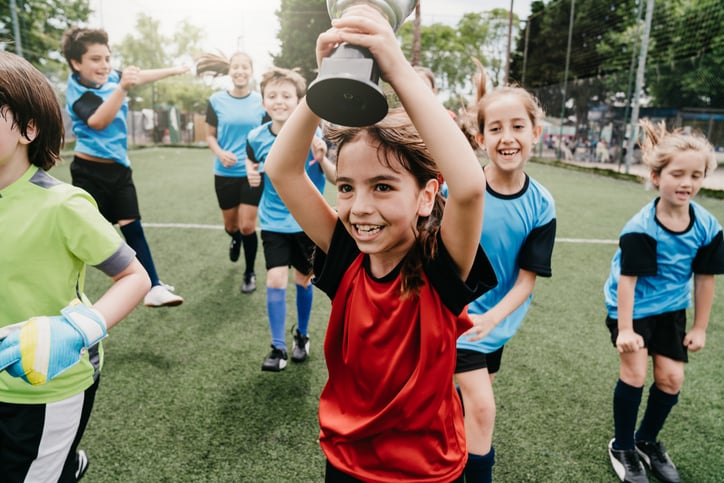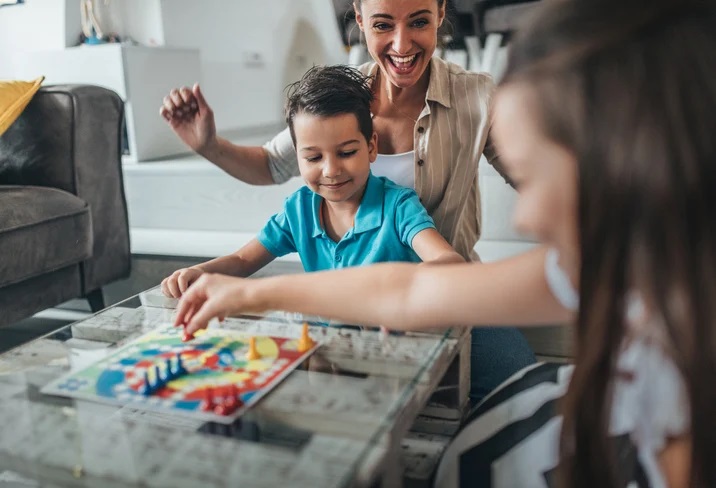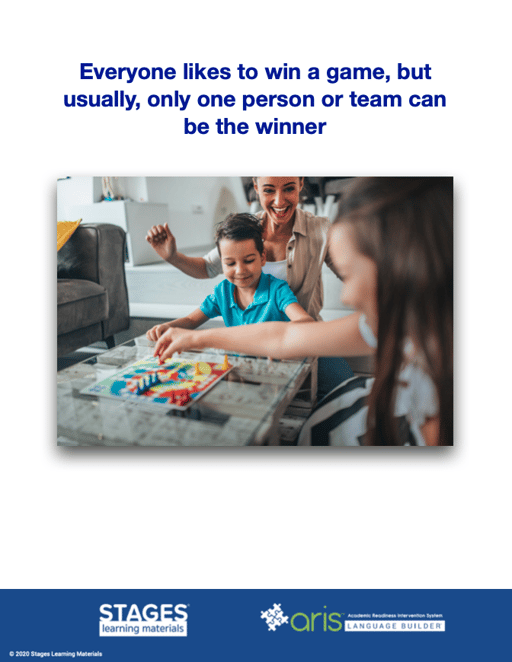Teaching Autistic* Children About Winning and Losing
Some children with autism may find it very difficult to control their emotions when they don’t win in a game, quiz, or raffle, or when they don’t get the highest score in their class. This can lead to emotional outbursts, much to the dismay of those in charge and their fellow students.
My grandson has struggled with this ever since he was young, and at age 16 he often still needs to be frontloaded with reminders of appropriate responses before engaging in any competitive activities.
Of course, everyone likes to win at games, but why is it so much harder for children on the autism spectrum to learn to be good sports, you may wonder.
Here are some of the reasons why:
Difficulties with "Theory of Mind"
Theory of Mind (ToM) is defined as the ability to understand and take into account another person's mental state. In other words, it is the ability to relate to and understand that other people have thoughts and feelings too. This doesn’t mean that a person with autism is selfish. They just may have a hard time relating and understanding that other children can also be good at activities they participate in and that they also desire and deserve a chance to win.
Rigid Thinking
Children with autism are often rigid thinkers and lean toward perfectionism. This may make them feel it is essential to always win at every game or to always be top of their class, and that anything less than that means they failed. They may have a hard time grasping that not everyone can win or be right all the time. They need to be taught otherwise and encouraged that giving their best effort is enough.
Lack of Experience
Some may not have experienced losing at games, because parents or caregivers may have protected them from getting upset by allowing them to win during competitive activities. They simply didn’t have any practice in developing the skill of graciously coping when losing. Having been privy to numerous meltdowns in the years that I cared for my grandson, I can certainly relate to the temptation of occasionally allowing a child to win at a game to avoid a major upset. And yes, I’ve done it! But of course, this temporary solution is not going to teach them good sportsmanship.
Here are some things I’ve tried over the years that have helped and are still helping my grandson to successfully participate in activities without getting upset at the outcome.
Social Stories™ or Social Narratives
A Social Story™ or Social Narrative can illustrate that it is not necessary to always win or be the best and that it is important to be happy for others when they have a turn at winning or reaching a top grade. (See the sample Social Narrative, I Can Learn from Losing.)
When he was younger, I used a Game Rules card with my grandson. I simply typed out the rule, printed it on the back of a picture, laminated it, and always had several copies ready for review in our game closet. I reviewed it with him before every board game or activity that involved winning or losing to remind him of the reaction that was expected of him while playing games with me and other family members.

Teaching the Skill
The concept of losing can initially be taught in a one-on-one supportive setting, and once the skill has been practiced, it can then be generalized to real settings with other family members at home or with peers at school. Here are some strategies you can use:
- Start with an activity or game that is not important to the student so losing is easier.
- Allow the child to win the first 2-3 times while modeling what to say and do when being the “loser.” After letting them win a few games, allow the child to experience losing and use a visual prompt as a reminder of what they should say and do.
- Praise the child for staying calm and accepting that they did not win the game. Remind them that they may be losing the game, but they’re winning by being a good sport and having a great attitude.
- In addition to praise, provide them with a reward immediately after they lose the game, It should be something they like, such as a favorite activity, edible, or attention.
- Once the child gets the hang of being a gracious loser, the rewards can fade, but continue to praise them each time they display good sportsmanship.
- Make sure to communicate these strategies with other adults or teachers, because generalizing this skill to other settings can be tough without the support your child or student needs.
- Be sure to reteach or review the expectations for good sportsmanship whenever needed.

If despite frontloading your child or student with reminders of appropriate reactions to losing they still break down, never ridicule them for crying or getting upset. They may already feel embarrassed or disappointed in themselves for not reacting the way they were expected to. What they need most at times like this is our patience, understanding, and compassion.
Before talking to them, wait them out and give them a chance to calm down. Reminding them of the rules and trying to talk them through their upset in the heat of the moment may only aggravate the situation. Once they are calm, validate their feelings and acknowledge that it is hard for most people to lose at a game. Review the visual support and/or social narrative for winning and losing with them, and when they are ready, encourage them to try again.
I used these strategies with my grandson, and he has improved tremendously in this area to where he hardly needs to be reminded anymore. Still, even at age 16, he can have days where he feels extra vulnerable. He has learned that in that case, he can choose to opt out of participating in a game or activity. I encourage him to participate, but I always respect his feelings when he doesn’t feel like playing, and I never make him if he indicates he’d rather not.
Everyone likes to win at games. Losing at games is never easy, but it may be a lot harder for autistic children and adolescents to practice good sportsmanship when they don’t win at a game, or when they are not the best at something. Teaching them concrete ways to react and what to say during gameplay can help them learn to cope with these emotions and will make playing games a lot of fun for everyone!
Do you have experience and tips on how to help children on the spectrum to do well at winning and losing? Tell us in the comments below.
*A Note from STAGES® Learning: Whenever possible Stages Learning uses the preferences stated by an individual as to whether to use identity-first (“autistic person”) or person-first (“person with autism”) language. In a poll of 21,000 people, 69% preferred identity-first language, and 31% preferred person-first language. A thought piece by Northeastern University indicated that in the majority of cases, autistic people themselves prefer to be called autistic people, whereas caregivers and professionals prefer the wording “people with autism.” We agree with the Northeastern article that the group being talked about should be able to dictate what they are called. As we move forward we plan to alternate our usage in our written materials and in our speech. We recognize the importance of this issue to so many people and we plan to revisit this issue in the coming years with the expectation that preferences will likely continue to shift and we will do our best to reflect these changes. We welcome your thoughts on this issue. Please feel free to contact us.

Ymkje Wideman-van der Laan
Ymkje Wideman-van der Laan is an author, public speaker, and Certified Autism Resource Specialist from the Netherlands. After working abroad as a teacher and humanitarian for 25 years, she moved to the US in 2006 and assumed the care of her then 6-month-old grandson, Logan. There were signs of autism at an early age, and the diagnosis became official in 2009. She has been his advocate and passionate about promoting autism awareness and acceptance ever since. Logan is the inspiration behind the Autism Is...? (tinyurl.com/5aj73ydd) series of children’s books she initially wrote for him and later published. Ymkje currently lives in California with her now 15-year-old grandson, and besides writing, presents autism training workshops for early childhood educators, parents, and caregivers. You can read more about her story in her newly released book, Autism on a Shoestring Budget, [Early] Intervention Made Easier (https://tinyurl.com/ysxhxbmf). For more information, you can visit www.autism-is.com, www.facebook.com/AutismIs, and/or contact her at autismisbooks@gmail.com.






